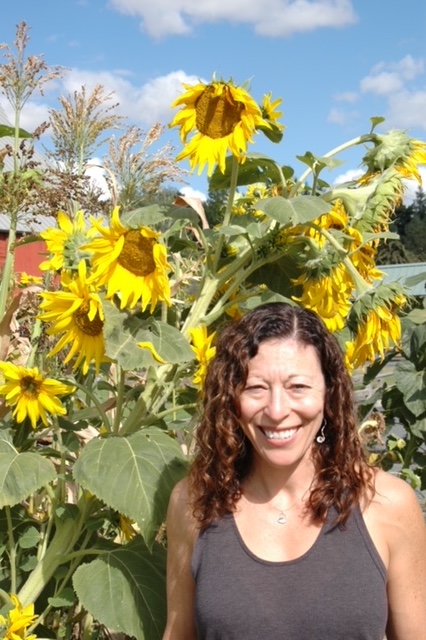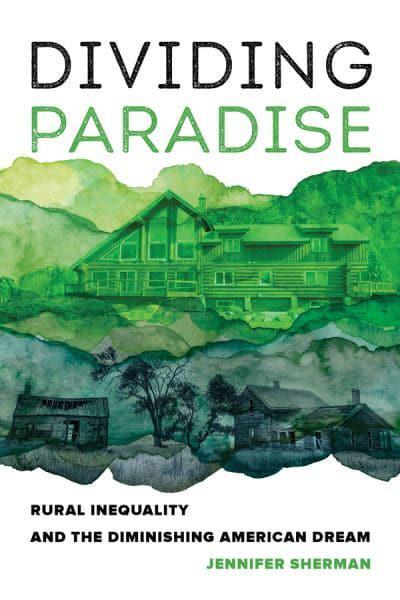WSU sociologist offers deep insights about rural social divide impacting NCW communities
Perhaps the most vexing challenge we face in our North Central Washington communities today is addressing the growing economic and social divide that is the result of our economy shifting from being based on natural resources like agriculture and logging to one dominated by tourism and recreation.
This economic shift has resulted in gentrification — the displacement of local inhabitants by wealthy outsiders attracted to our amenity-based opportunities like cycling, skiing, and hiking. Think about the rapidly rising property values in Leavenworth, the Methow Valley, Chelan, Wenatchee and other communities which are pricing long-time local residents out of the housing market. We are all feeling the effects of gentrification and rising income inequality.
The long-term health and well-being of our communities requires us to find ways to lessen the social and economic divide but it’s not going to be easy.
Dr. Jennifer Sherman, a sociologist at Washington State University, has written a thought-provoking book called Dividing Paradise: Rural Inequality and the Diminishing American Dream that is based on her in-depth research in a community that is facing these issues.
Thanks to Humanities Washington and co-sponsors Methow Conservancy and the North Central Regional Library, Sherman gave a presentation via Zoom recently to discuss her research and its implications. Her presentation should be required viewing for everyone who lives in our region.
In conducting her research, she embedded herself in the rural community, volunteered at nonprofits and conducted lengthy interviews. The study revealed a split between long-time residents (old-timers) and newcomers who made their fortunes elsewhere and moved to the community or retired there. She uses the pseudonym Paradise Valley for the community she studied..
The influx of newcomers had some positive benefits in terms of economic growth but also serious downsides — namely gentrification and increased income inequality.
Old-timers, in general, tend to be white, conservative, have limited financial resources, limited education backgrounds and are financially struggling.
Newcomers, she found, tend to be white, liberal, more highly educated and wealthy. “What I found was that the newcomers have access to all sorts of resources, both monetary and non-monetary, that make it a lot easier for them to navigate the challenges of living in a rural community,” Sherman said.
Long-time residents were having a hard time scraping by in an economy based on services with a lot of seasonality, often having to access the local food bank and having to do without things like television or Internet to make ends meet.
A distressing aspect of Sherman’s research was what she termed “class blindness” that characterized the attitudes of many newcomers — an inability or unwillingness to appreciate the struggles of those who are struggling. There also tended to be a condescending attitude toward old-timers and an absence of concern for their plight. As one newcomer told her, “it seems to me that the ones who were born and raised here and stayed here and never left are pretty ignorant.”
Some newcomers expressed the view that old-timers were lazy, uneducated and responsible for their own problems, ignoring the tremendous privileges and advantages of wealthy transplants into the community who could easily dominate the valley’s best resources – child care spots, jobs and the like.
If we flip the script and consider the attitudes of wealthy conservatives towards urban poverty and homelessness, we often hear the identical negative opinions. It seems that blaming those who are struggling is a common attitude in our society.
Healing these divides is going to require a combination of policies and practices that reconnect the community, Sherman argues. “We can’t just address it on the local level or the individual level. So on a large scale, we absolutely need to think about investment in public policies that support all families and adults,” Sherman said.
While we cannot unilaterally address the public policy issues, we can work towards strengthening our communities. We already have strong nonprofits working in this area such as the Methow Conservancy, the Community Foundation of North Central Washington, Upper Valley Mend, Serve Wenatchee Valley, Chelan Valley Hope and others.
A positive first step would be to have communities invite Sherman to share her findings in public forums as the basis for a clearer understanding of the challenges ahead through Humanities Washington.


